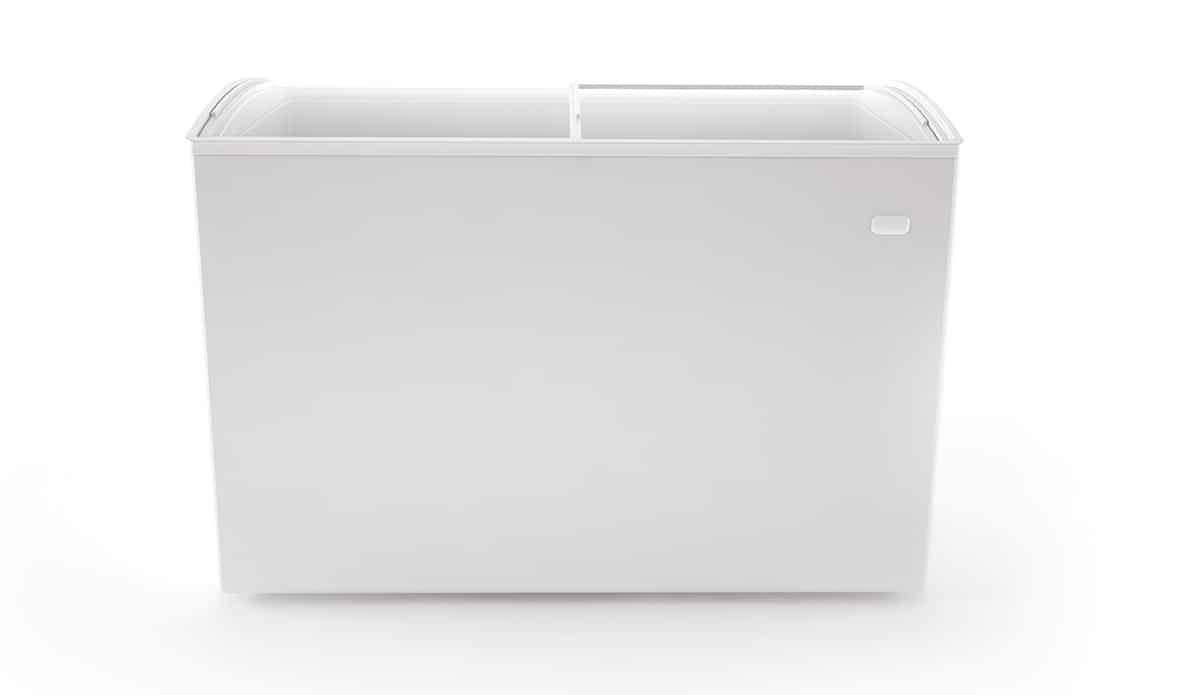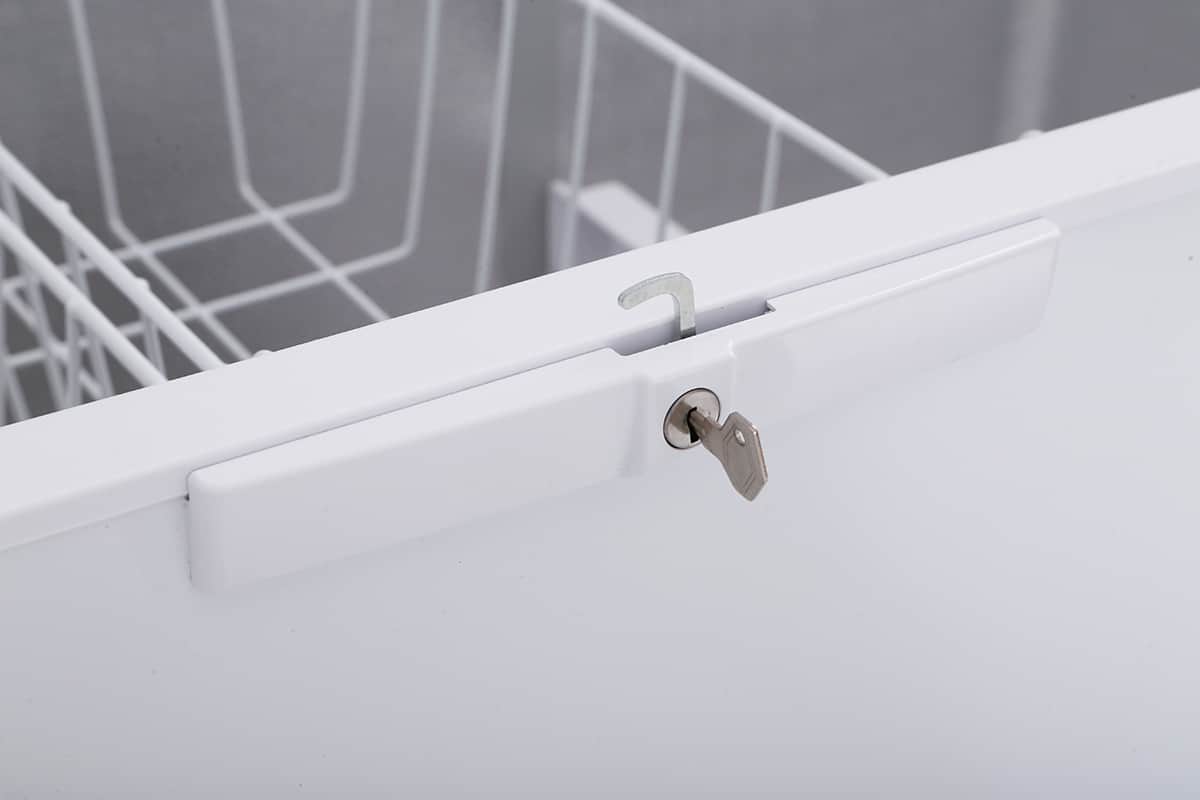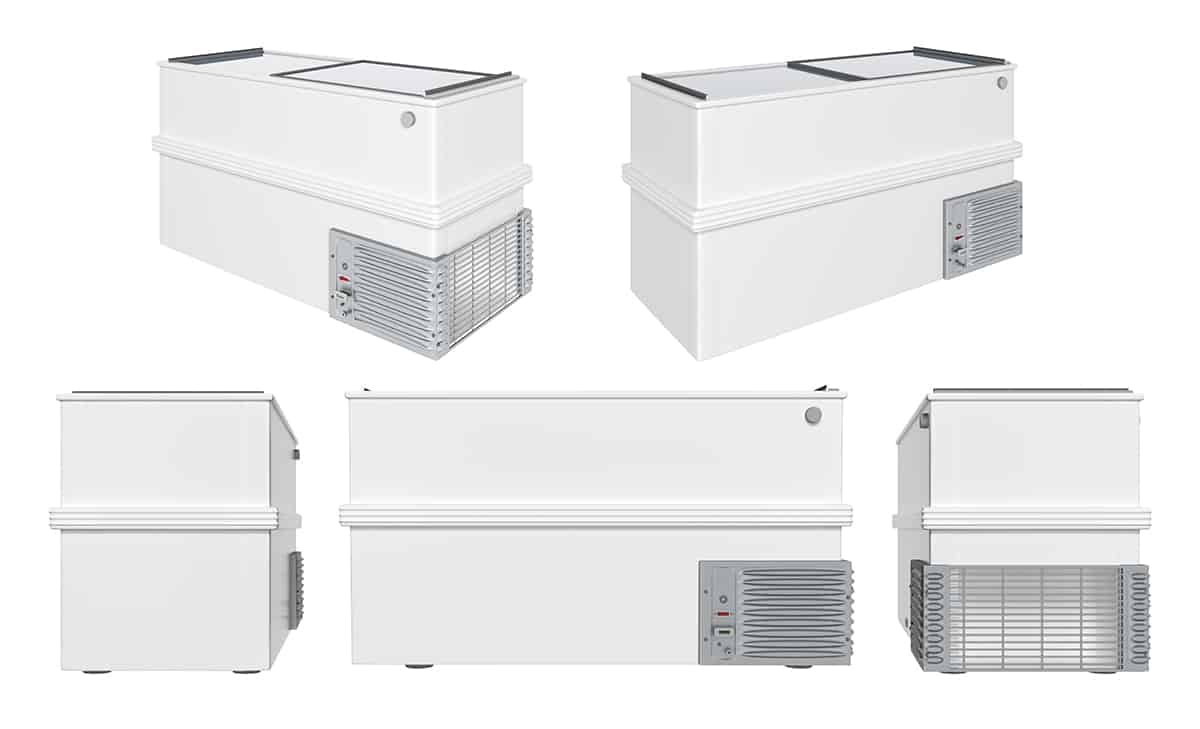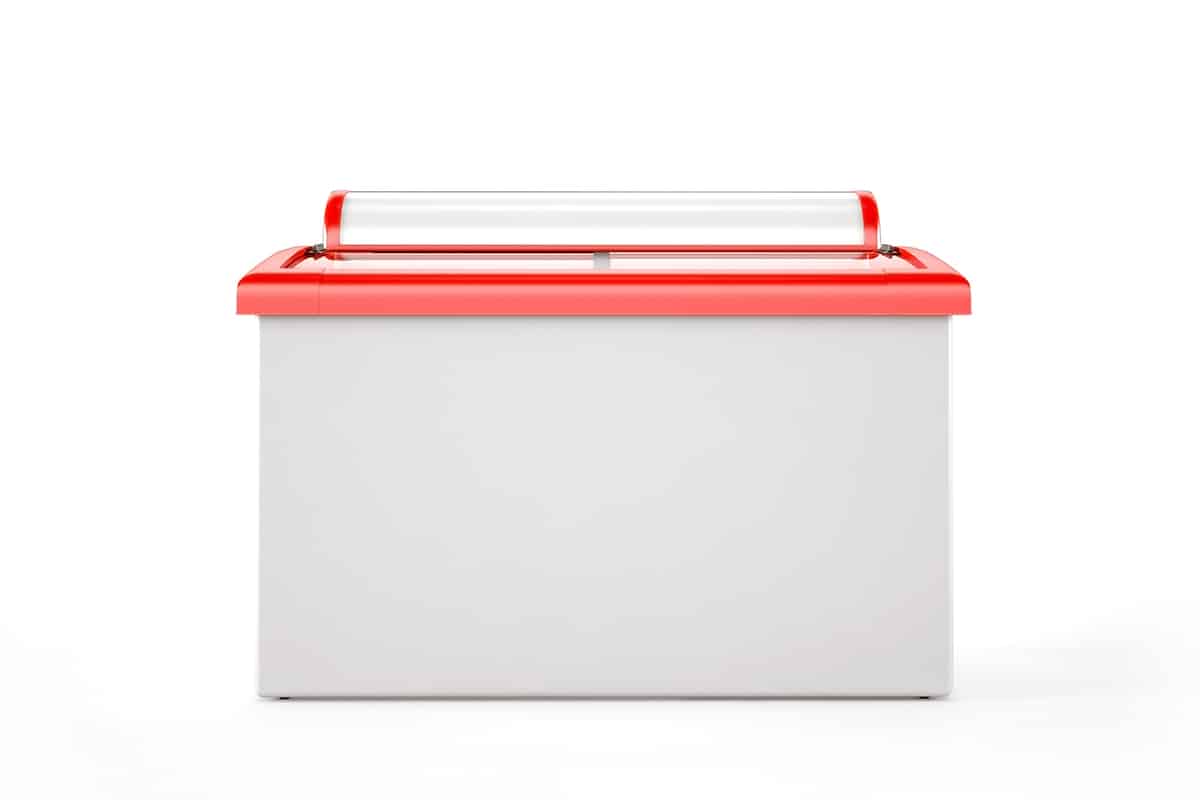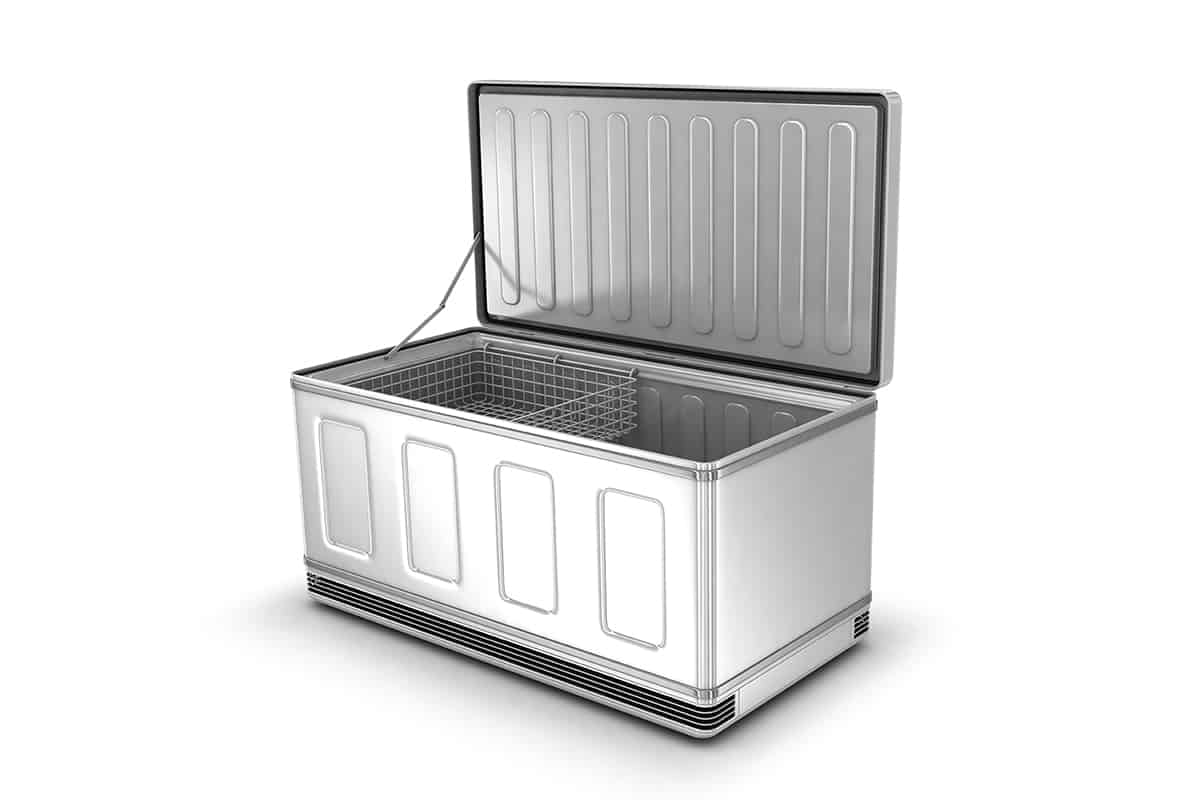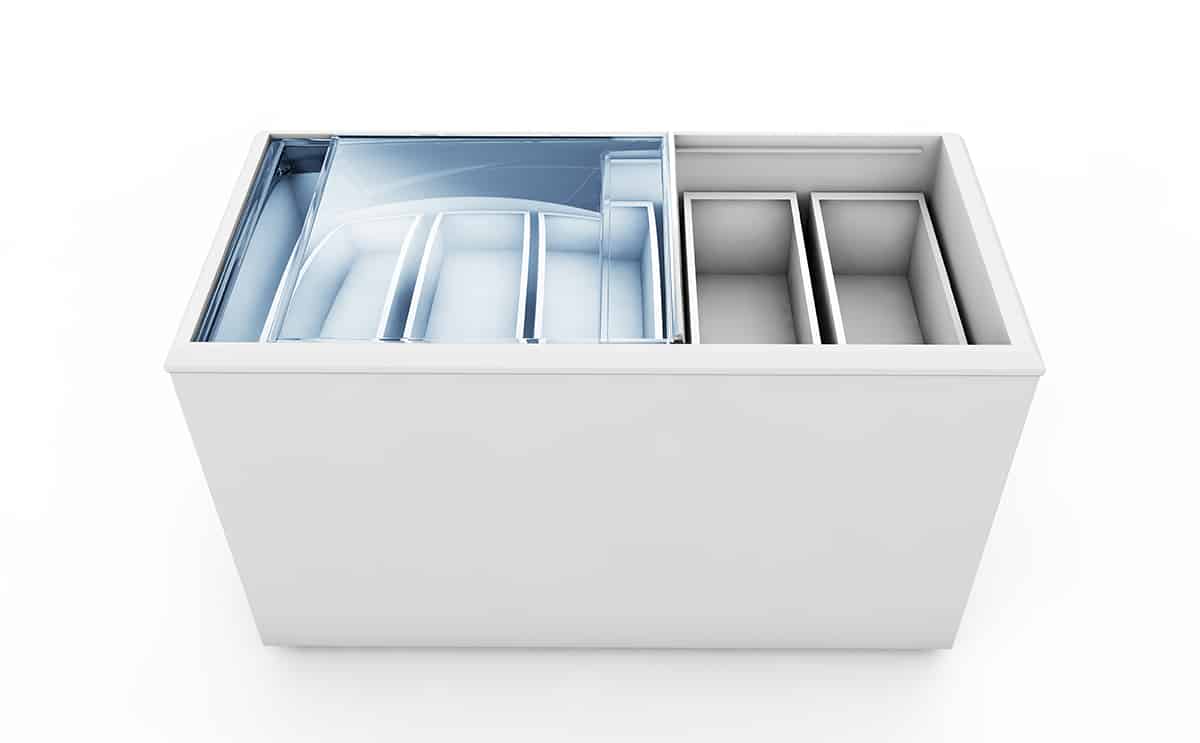Chest freezers are great for keeping plenty of food in stock for your family, but their main issue is that they are so bulky. If you find that you need a chest freezer but haven’t got any indoor space to store it, you may question whether it’s safe to keep the freezer outside.
While most chest freezers are designed to be kept inside the home, there are some that can withstand outdoor conditions. Whether or not you can keep a chest freezer outside will largely depend on your local climate, and the type of conditions it will be kept in. Extreme temperatures are likely to cause an outdoor freezer to malfunction, but if you can keep the freezer sheltered then you may be able to let it stay outside.
When Can a Chest Freezer be Kept Outside?
Unless you have bought a freezer that is designed to be kept outside, such as an outdoor kitchen freezer, then the best place for your chest freezer is inside the home. This could be in the kitchen, the utility, or even in the garage or basement. However, if you are really stuck for space then moving the freezer outside could be an option. Here we look at the factors which will affect outdoor freezers.
Outdoor temperature
A regular chest freezer is designed to work within a certain temperature range, allowing for fluctuations within the home. If you live in a climate that is quite mild and closely mimics room temperature throughout the year, then this means your freezer should have no problem being kept outside.
The problem arises when the temperature gets too high or too low. In very hot climates, the freezer will have to work really hard to maintain a cold interior temperature. This will cause your power bills to rise, and could also lead to the appliance malfunctioning. Very low temperatures are also an issue because the compressor is kept near the outside of the freezer, and can freeze over.
Outdoor conditions
There are things to consider besides temperatures when you are thinking of moving your chest freezer outside. If you live in a coastal region then the salt in the air will cause corrosion to the freezer, or piles of dry leaves around the freezer could present a fire hazard.
If the freezer is not protected, then it could also be exposed to heavy rain or piles of snow, which can affect the performance of the freezer and also significantly shorten its lifespan.
Considerations for Keeping a Chest Freezer Outside
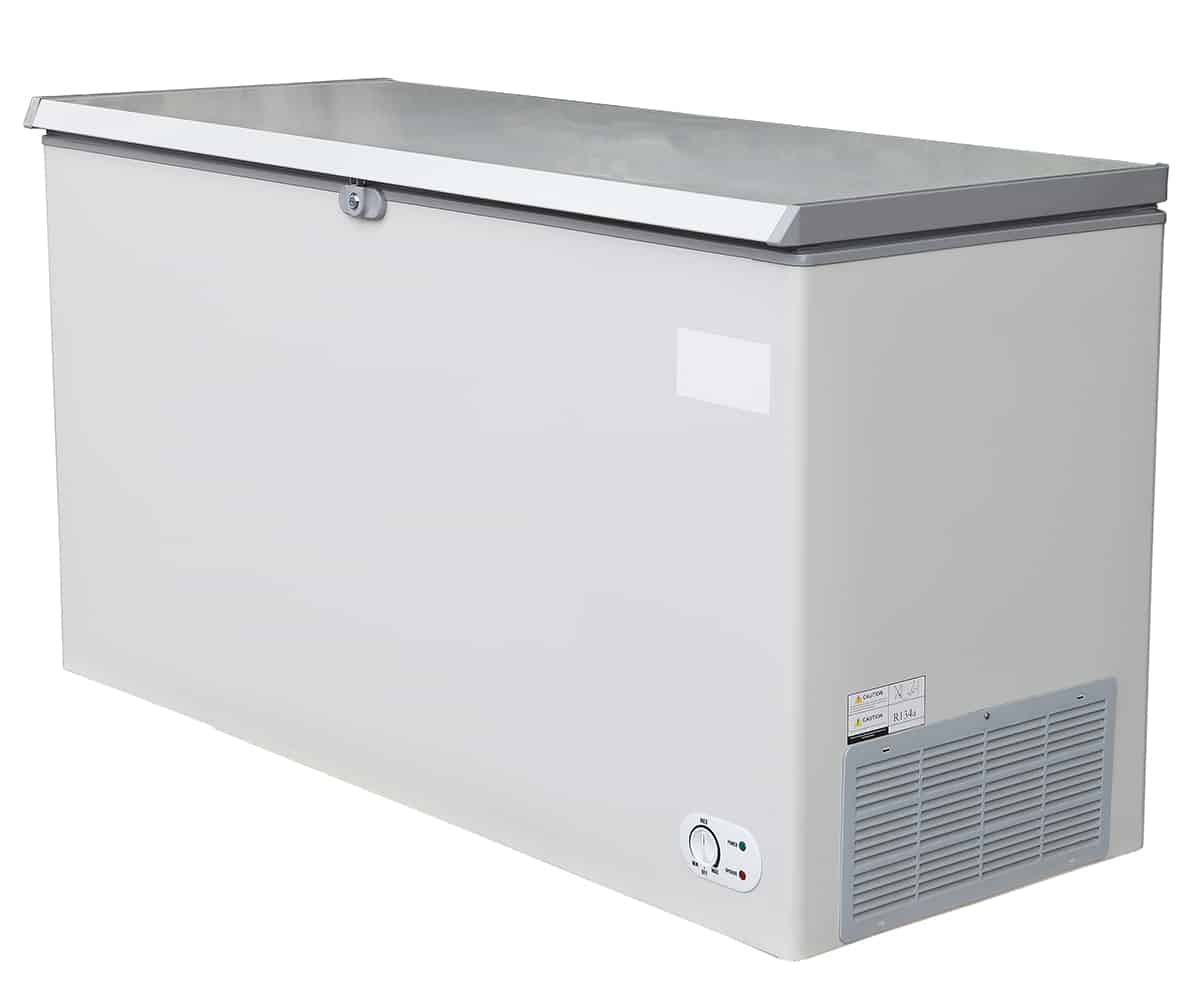
Before moving your freezer outside you’ll want to assess how suitable your outdoor area is.
Proximity to kitchen
If you expect to be grabbing some food from your freezer to cook at mealtimes, then you don’t want your freezer to be too far from your kitchen because this will be inconvenient.
If you’re keeping a chest freezer in your backyard, think about the proximity of the freezer to the place where you prepare or cook food. Ideally, the freezer should be next to your back door, so that you don’t need to trek to the other end of your garden every time you want to get something out of the freezer.
Shelter
Keeping your freezer in a protected, sheltered spot is going to significantly increase the chances of the freezer remaining in good working order. Consider building a roof over your freezer, or a compartment where it can be housed. A small shed could help to make your situation more appropriate for a freezer to be kept outside, since it won’t be exposed to direct sun, and will be kept free of rain and snowfall.
Climate
Giving thought to your local climate is essential before you make the decision to keep your freezer outside. Extreme hot or cold temperatures can wreak havoc with a freezer that is intended to be used indoors. If your chest freezer is old and you aren’t too bothered if it breaks down, then you could risk storing it outside in extreme temperatures, but this is not recommended.
Access to power
An outdoor freezer is, of course, going to need access to the main power. If you have an outdoor shed that is hooked up to your electrical system then this could be a great spot for your freezer.
If you have an outdoor plug socket on the exterior of your home (that you might use for seasonal string lights) then this could also work well for an outdoor freezer. Take care to ensure that your freezer is safely hooked up to electricity, because if bad wiring comes into contact with rain then it could be a recipe for disaster.
Tips for Keeping a Chest Freezer Outside

If you decide to keep a chest freezer outside, there are some tips you can use to help you get the most out of it.
Use a freeze stat
If you live in a climate that experiences cold winters, then you can turn your outdoor freezer off during a cold snap. The low temperatures outside will ensure your frozen items stay frozen, and this will save on your energy bills. You can use a freezer stat which will monitor the temperature, and turn the freezer off when it reaches a pre-set low temperature. Just be sure to turn the freezer back on again when the weather starts to warm up.
Maintain good air circulation
Air circulation around a chest freezer is needed to ensure it keeps working as it should, and this also helps to prevent fire risks. You should clear up fallen leaves or other debris that settles on top of the chest freezer or around the freezer as soon as it appears. Also, take care not to store other items close to the freezer because this could interfere with the airflow.
Routinely check for leaks
Keeping the freezer outside makes it more vulnerable to sustaining damage. Regularly check the freezer for signs of a leak, so that this can be remedied before the freezer fails and your food gets ruined.
Cover the freezer
Protecting the freezer is going to help ensure it continues to work properly, and it can also help to extend its lifespan. You can create a porch roof over the top of the freezer to keep it clear of rain and snow or use a plastic rain cover with ventilation for circulation, similar to what you may put over a rabbit hutch in the winter.
A chest freezer being kept outside should not be subjected to heavy rainfall or snow, and it should also be kept out of direct sunlight. In a pinch, drape a tarpaulin over the freezer in a storm, and use weights on top of the freezer to hold it in place.
Be selective about food
If your chest freezer is being kept outside you should think carefully about what you store in it. Braving the rain every mealtime to grab a packet of chicken nuggets from your outdoor freezer isn’t ideal.
Ice cream can work well in an outdoor freezer because it is commonly eaten during summer when you won’t mind going outside to get it. Large joints of meat you are keeping for special occasions are also a good choice since you won’t need these often.

